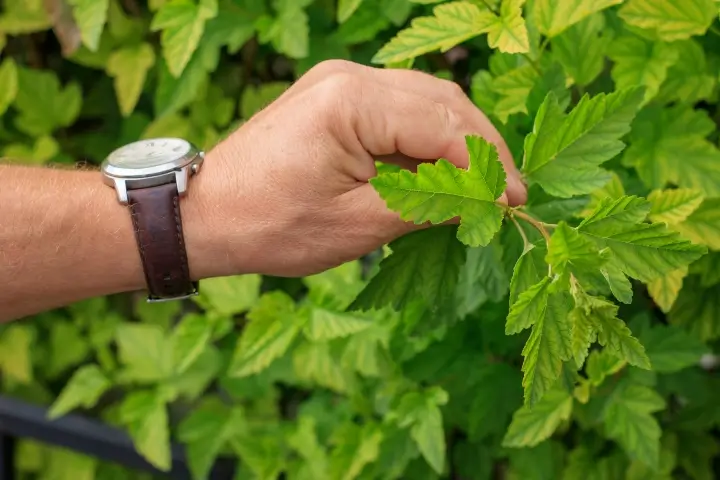
Looking out over your yard and seeing your trees and plants thrive is deeply satisfying, creating a space that truly feels like home. In return, you want to help them flourish. But how do you identify when a plant is struggling? The clues may be subtle, but they’re there if you know what to observe.
Learn how to evaluate the health of your plants and trees with this guide, featuring expert advice from tree and plant care specialists designed for the unique conditions of the Eastern Massachusetts climate.
How to Check the Health of Your Trees and Shrubs
When trees and shrubs face health challenges, they often show it through specific symptoms. The following signs aren’t always cause for alarm, but they might signal the need for further investigation into potential issues:
- Leaf Discoloration: Leaves turning yellow, brown, or developing spots during the growing season may signal stress, nutrient deficiencies, or disease.
- Dead or Dying Branches: Branches that are bare, have peeling bark, or break easily are often a sign of underlying health issues in the tree.
- Fungal Growth: The appearance of mushrooms or other fungi on or near the tree often indicates internal decay and potential structural instability.
- Sparse Foliage: A thinning canopy compared to prior years may suggest stress, disease, or problems with the tree’s root system.
- Insect Activity: The presence of pests can indicate a tree is weakened, potentially due to an underlying illness, leaving it vulnerable to infestation.
- Cracks or Splits in the Trunk or Leaning: Visible cracks or splits in the trunk may point to structural weakness, often caused by disease, and could make the tree prone to falling.
Common Health Problems for Plants
A cough in your throat can have numerous causes, and the same is true when leaves on a tree start to yellow. Identifying the symptoms is just the beginning. The next step is uncovering the root of the problem. Here are some typical reasons your plants may be under stress:
- Pests: Insects such as aphids, beetles, and caterpillars can damage leaves, stems, and roots, often causing visible harm and weakening the plant.
- Diseases: Fungal, bacterial, or viral infections may lead to symptoms like wilting, spotting, or the presence of mold, which can compromise plant health.
- Nutrient Deficiencies: A lack of vital nutrients such as nitrogen, potassium, or iron can be hard to detect but may cause long-term growth and health issues.
- Soil Conditions: Problems like poor drainage, compacted soil, or an unsuitable pH level can hinder plant development and overall vitality.
- Physical Damage: Plants can sustain injuries from lawn equipment, animals, weather events, or other external forces, which may leave them vulnerable to further problems.
- Weather Extremes: Conditions such as drought, frost, or extreme heat can place significant stress on plants, impacting their growth and resilience.
Need a Tree and Plant Healthcare Estimate?
Click below to leave your information and we will call you right back!
Ready to schedule your tree & plant care service?
Leave your information below and we will give you a call back.
*During normal business hours. After hours calls will be returned the next business day.
Specialized Plant Health Care for Extreme Weather
Prolonged heat and dry conditions can cause lasting damage to plants, turning trees and shrubs into wildfire hazards in certain areas. Similarly, cold weather events like frosty nights can present serious challenges.
Tree Tech Inc. provides expert plant care tailored to the Eastern Massachusetts climate, offering solutions for both hot and cold seasons. We’ll ensure your plants stay healthy and vibrant all year long.
Questions About Your Plant’s Health in Eastern Massachusettes?
Your plants play a role in your well-being, adding beauty and serenity to your life. Healthy plants mean every view from your window feels fulfilling and peaceful. By ensuring their care, you create a nurturing environment that supports both your plants and your overall sense of calm.
If you have questions about the health of your plants in Eastern Massachusetts, don’t hesitate to contact Tree Tech Inc. Our certified arborists are here to provide expert guidance for even the toughest challenges.
Back to Tree and Plant HealthcareHow Do You Check the Health of a Plant in Eastern Massachusetts?
Also Serving Rhode Island
Boston | Worcester | Cambridge | Brockton | Quincy | New Bedford | Fall River | Newton | Foxboro | Framingham | Plymouth | Attleboro | Taunton | Hingham | Needham | North Attleboro | Norton | Easton | Franklin | Walpole | Dover | Westwood
Providence | Warwick | Cranston | Pawtucket | Newport | Woonsocket | Cumberland | Coventry | Newport | Johnston | North Kingstown | Bristol | Portsmouth
Home » Tree and Plant Healthcare » How Do You Check the Health of a Plant?



